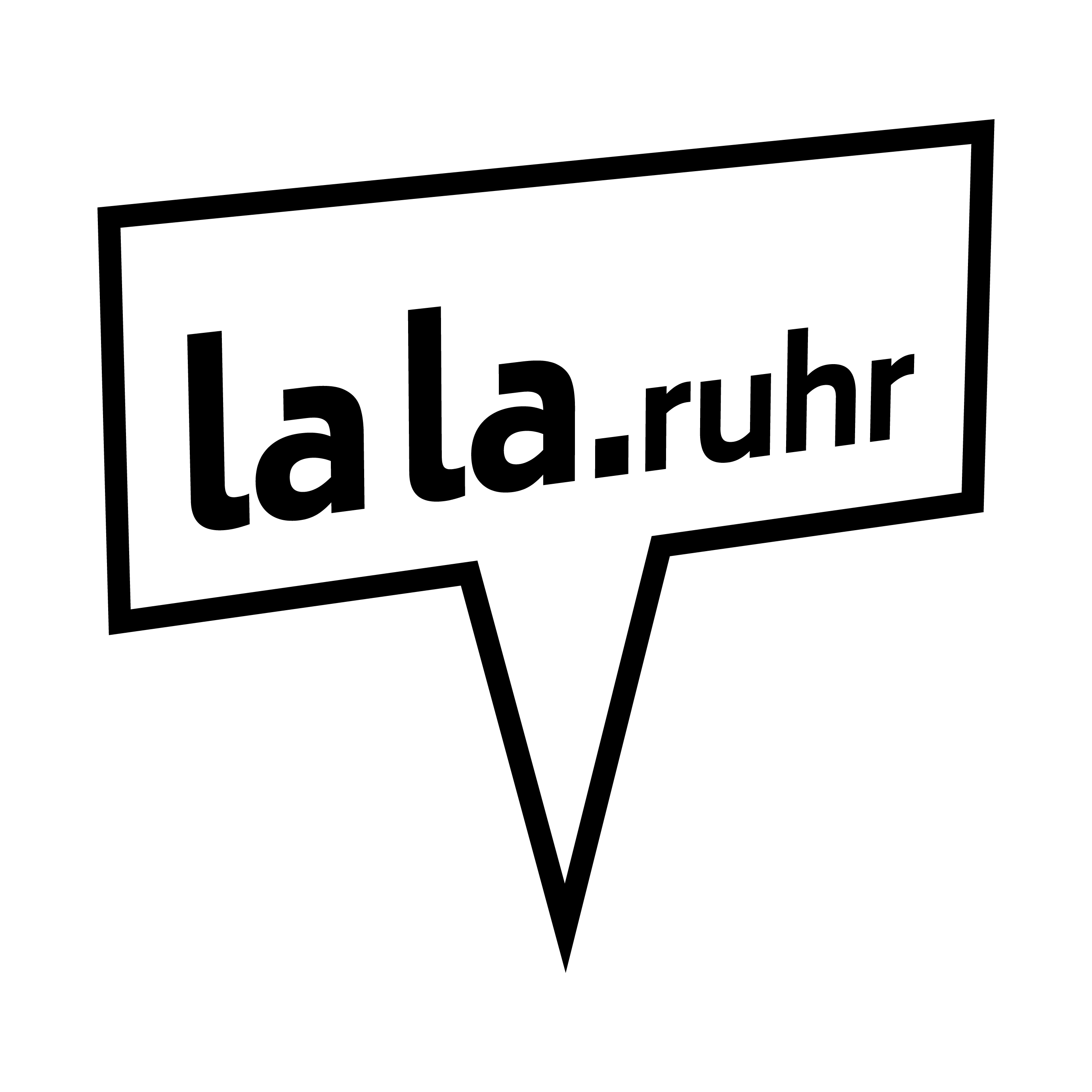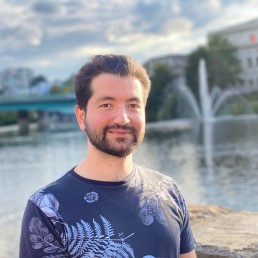
New home:Arriving in theurban landscapeof the Ruhr region
Omar Mohamad compares the urban landscape of Aleppo with that of Mülheim an der Ruhr for lala.ruhr
New home?
2015. The alarm clock rings at 7 am. It is still dark outside. I want to get out of bed, but my mind doesn’t realise that the new day has begun. And I ask myself, has the day already begun? Maybe I am still dreaming? Why is it still dark? I am used a little brightness to start the day. Something in me doesn’t seem to want to understand. Having light in the morning is a feeling of home for me. But my home is 2,936 km away. Deep loneliness overcomes me in the morning silence. In the darkness one is always lonely alone. It is my first winter in Germany. I come from Syria. There, the sun rises at 6:30 a.m (even) in winter. With the first rays of sunshine, people wake up from their dream world and start the new day. But here in Germany, an alarm clock rings. I have to get out of bed and go about my duties. I get up and get ready. I dress warmly, take my bag and leave the gym where I am staying with many others. I am now waiting for the bus. It is cold and dark. I get on the bus and it is still dark. I ask myself: is this a dream or reality? Am I dreaming or is it getting light again? If it remains dark, then I am dreaming. I look out of the window at the houses. They look like the houses of my childhood. Houses I saw in cartoons as a child. To me, all the houses here look the same. I close my eyes and remember the house fronts of my home. I open my eyes. I have finally arrived. I get off the bus and cross the street. Have I really arrived? When does a person actually arrive in Germany? On my way to the language school, I walk through a park and suddenly stop. I look at the lawn. The deep green fascinates me and holds me for a moment. I had never seen such a deep green before. No one who comes from Syria knows such a green. The green of my homeland is a different green and so I wonder if I will ever arrive here. It’s almost light now and it’s clear that everything here is not a dream!
Old home!
Aleppo is a very old city that has been affected by war so it has been destroyed and rebuilt three times. Now it has been destroyed once again. The difference between rich and poor is very big. Here you find a colourful diversity of cultures, ethnicities, and religions. Arabs, Kurds, Arameans, Armenians, Assyrians, Circassians and Turkmen. Many of them are descendants of displaced peoples from the 19th and 20th centuries. Aleppo has become their home. People live close together there and every 100 metres the cityscape changes completely. There are often many more families living in each house than in Germany. The houses in Aleppo generally do not have pitched roofs so you can look out over the city. Every flat has a balcony decorated with plants which is big enough for the whole family to enjoy a coffee in the morning. Like Mulheim, some parts of Aleppo are very mixed but other neighbourhoods are less so and some are homogenous. In any case, the city’s cultural identity is characterised by diversity and tolerance. I miss the vibrant diversity of the pulsating metropolis, the many smells, the good food and, of course, my family and friends. Aleppo is not only the largest industrial city, but also the cultural capital of the country. The city has developed rapidly in the modern age without paying attention to the environment. It has been neglected: residential and industrial areas are mixed together. It was only later on that they thought to establish an industrial area outside the city to improve the quality of life of the city dwellers. This is now located a few kilometres away in the north-eastern part of the city. At the time, I was working in urban development in Aleppo. In the historical development of the city, industry had spread directly into the urban area. A big challenge of my work was to convince the companies that had settled there to use the newly created industrial area.
New ideas for my new home
2021. I get off the bus, finally arrived in Germany. I feel free! No more fear, no more worries! I feel free to express my opinion without being censored, persecuted or tortured. For me, German democracy is like the air I breathe. Now I’m used to the winter darkness and the lush green of the lawn is the green of my new home! But when I walk through the streets, I wonder why they can’t have a car-free city centre, or at least a car-free day. These streets remind me of the streets of Aleppo, which are not very clean either. Aleppo’s streets are no greener than Mülheim’s, but there are very large parks there. There are a lot of concrete buildings at the train station and in Mülheim’s city centre. The Ruhr is a green lung that saves the cityscape. In Aleppo, one Saturday a month, residents and non-residents would clean the streets together. Afterwards, they’d eat, drink and celebrate together. In this way, people from different ethnic backgrounds could come into contact with each other and form friendships. It would be great to establish something like this here in Mülheim as an intercultural initiative.
I continue to ride the Metropolrad to my new job. After completing my training as an event manager at the Ringlokschuppen, I am now an employee at the Theater an der Ruhr. The road is good, but there are still holes and the kerbs don’t make it any easier. Many car drivers show no consideration and claim the road for themselves. A comprehensive extension of the bicycle lanes could be pushed forward. It is difficult to find a safe place to park my bicycle, many parking spaces are occupied by old, forgotten bikes. I still can’t believe it. Some time ago my bicycle was stolen, right in front of the building of the public order office. A parking space with a security system that is insurmountable for the thief. That would be it! I continue on a short passage along the beautiful Ruhr. How quiet and peaceful everything is here. The only thing missing from my dream Mulheim is Mediterranean weather and crystal-clear water!
Omar Mohamad (*1989) is interested in intercultural projects and working together. He studied business administration in Syria and trained as an event manager in Germany. Since 2016, he has been volunteering in various projects in the Ruhr area, including the “Free University of Oberhausen”, a socio-cultural education project. He is also a member of the Grün-Bunte list for the integration council of the city of Mülheim. Since September 2020, he has been responsible for PR and audience development at Collective Ma’louba at the Theater an der Ruhr.

